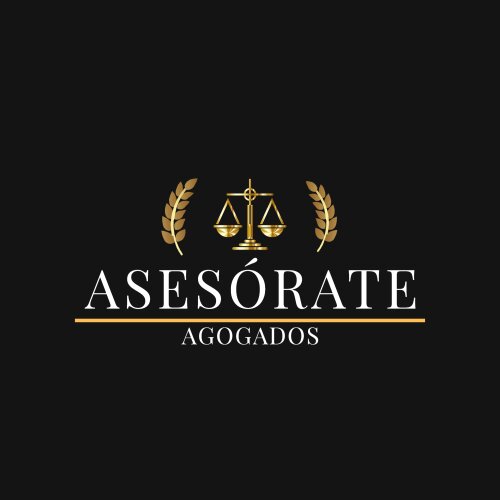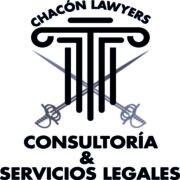Best Faith-Based Law Lawyers in Bogota
Share your needs with us, get contacted by law firms.
Free. Takes 2 min.
List of the best lawyers in Bogota, Colombia
About Faith-Based Law in Bogota, Colombia
Faith-Based Law refers to legal matters, rights, and obligations that arise within the context of religious faith, institutions, or beliefs. In Bogota, Colombia, Faith-Based Law encompasses a range of issues such as the legal status of religious organizations, recognition of faith-based marriages, religious freedom, and the intersection between church and state. Colombia upholds freedom of religion as guaranteed by its Constitution, and the diverse population of Bogota includes followers of many faiths. Faith-Based Law in this context often involves balancing religious practices with the obligations and restrictions of Colombian secular law.
Why You May Need a Lawyer
There are several circumstances where individuals, families, or religious organizations in Bogota may need legal assistance related to Faith-Based Law. Some common situations include:
- Formalizing the legal status of a church or religious organization
- Negotiating agreements or property matters for religious institutions
- Resolving disputes involving church governance or internal regulations
- Addressing employment matters within faith-based organizations
- Protecting religious freedom and addressing discrimination based on faith
- Handling mixed marriages or family law matters involving different faiths
- Ensuring compliance with local laws when conducting religious events or ceremonies
- Assisting with visas or immigration matters for religious workers
- Dealing with inheritance issues governed by faith-based principles
Legal professionals with experience in Faith-Based Law can help navigate these situations while respecting both religious convictions and legal requirements.
Local Laws Overview
The Colombian Constitution guarantees freedom of religion and equality for all faiths. The State acknowledges the legal personality of churches and religious organizations that register with the Ministry of Interior. Local regulations in Bogota allow religious organizations to operate, own property, and perform ceremonies, provided they comply with Colombian law.
Religious marriages not recognized by the Catholic Church, or those conducted by minority faiths, may require additional legal steps to ensure civil validity. Employment relationships within faith-based organizations are governed by the Colombian Labor Code but may be influenced by religious doctrine, as long as this does not violate anti-discrimination laws.
Religious freedom is protected, but public order and secular principles must also be observed. Faith-based schools and institutions must comply with education and health standards. Foreign religious workers must secure appropriate visas and permissions. Disputes involving churches are generally resolved in civil courts unless an internal religious tribunal has jurisdiction and this is recognized by all parties and Colombian law.
Frequently Asked Questions
What rights do religious organizations have in Bogota?
Registered religious organizations in Bogota have the right to assemble, own property, perform ceremonies, and carry out religious activities, provided they do not conflict with public order or national law.
How do I register a new church or faith-based organization?
To gain legal recognition, a church or religious organization must register with the Ministry of Interior and fulfill certain documentation requirements, including by-laws and proof of address.
Can religious marriages be recognized under Colombian law?
Civil recognition is automatic for Catholic marriages, but marriages performed by other faiths require the officiant to be licensed, and extra steps may be needed for full civil validity.
What legal protections exist for religious freedom?
Colombian law prohibits discrimination based on religion and provides remedies if an individual or organization faces unjust treatment due to their faith.
Are faith-based schools subject to government regulation?
Yes, all schools, including faith-based ones, must meet educational standards and regulatory requirements established by the Ministry of Education.
How are disputes within a religious organization resolved?
Internal disputes may follow the organization’s bylaws, but civil courts can intervene if civil rights, property, or contractual matters are involved.
Can faith-based employers make hiring decisions based on religion?
Faith-based organizations can require certain positions to adhere to faith-specific standards, but must comply with Colombian anti-discrimination laws.
What should I do if I experience religious discrimination?
Victims of religious discrimination can file complaints with the Ministry of Interior, the Defensoría del Pueblo, or seek legal recourse through the courts.
Do foreign religious workers need special visas to serve in Bogota?
Yes, foreign religious workers must apply for special visas with supporting documents from their sponsoring organization, as regulated by Colombian immigration authorities.
Is it possible to include faith-based principles in a will or inheritance?
Colombian law governs inheritance, but individuals can express faith-based wishes in their wills as long as these do not contravene statutory inheritance rights.
Additional Resources
For further information and support regarding Faith-Based Law in Bogota, consider contacting the following:
- Ministry of Interior (Ministerio del Interior) - Responsible for the registration and oversight of religious groups
- Defensoría del Pueblo - Provides assistance in cases of discrimination and violation of religious freedom
- Local legal aid clinics - Offer free or reduced-cost legal advice in matters involving faith-based organizations
- Colombian Council of Churches and other faith-based umbrella organizations
- City of Bogota Human Rights Office - Offers guidance on religious freedom issues
Next Steps
If you require legal advice or assistance related to Faith-Based Law in Bogota, consider the following actions:
- Identify the specific legal issue or area - for example, registration, property, employment, or discrimination
- Gather all relevant documents, such as contracts, organizational bylaws, or correspondence
- Reach out to a lawyer knowledgeable in Faith-Based Law, ideally one familiar with both civil and religious legal frameworks
- Contact local governmental or support organizations for initial advice if you are unsure where to begin
- Schedule a consultation to discuss your situation and determine the best course of action
- Remain informed about your rights and obligations, and ensure that any action taken is in compliance with both Colombian law and your faith’s principles
Navigating Faith-Based Law can be complex, but with the right legal support, you can ensure your religious rights and organizational interests are protected in Bogota.
Lawzana helps you find the best lawyers and law firms in Bogota through a curated and pre-screened list of qualified legal professionals. Our platform offers rankings and detailed profiles of attorneys and law firms, allowing you to compare based on practice areas, including Faith-Based Law, experience, and client feedback.
Each profile includes a description of the firm's areas of practice, client reviews, team members and partners, year of establishment, spoken languages, office locations, contact information, social media presence, and any published articles or resources. Most firms on our platform speak English and are experienced in both local and international legal matters.
Get a quote from top-rated law firms in Bogota, Colombia — quickly, securely, and without unnecessary hassle.
Disclaimer:
The information provided on this page is for general informational purposes only and does not constitute legal advice. While we strive to ensure the accuracy and relevance of the content, legal information may change over time, and interpretations of the law can vary. You should always consult with a qualified legal professional for advice specific to your situation.
We disclaim all liability for actions taken or not taken based on the content of this page. If you believe any information is incorrect or outdated, please contact us, and we will review and update it where appropriate.
















